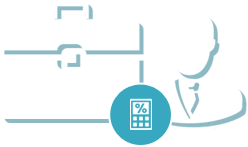 (877) TAX-TIPS | (877) 829-8477
(877) TAX-TIPS | (877) 829-8477 (877) TAX-TIPS | (877) 829-8477
(877) TAX-TIPS | (877) 829-8477
One of our experts will speak with you by phone and learn about your situation. We'll provide a clear plan if we are able to help.

We will analyze your IRS account transcripts and prior tax return filings, and figure out how to save you as much money as possible.

We'll also pursue to "Stop Collection Action", so the IRS can't garnish your wages or levy your bank accounts.

You say goodbye to tax worries and hello to financial freedom, as we help achieve the best possible tax relief solution.

With a single click you could be on your way to finding tax relief solutions and being free of your tax debt and all the pressure it brings.
Stop Wage Garnishments
When the IRS determines that they will be garnishing your wages to retrieve the tax debt y...
Resolve Back Taxes
One of the most instrumental ways in resolving your tax problems is by filing your tax ret...
Offer In Compromise (OIC)
Are you buried in IRS notices? Maybe an Offer In Compromise is an option for you. With a...
Are you buried in IRS notices? Maybe an Offer In Compromise is an option for you. With an OIC, the IRS agrees to let the taxpayer pay a fraction of the amount you owe.
Our team of tax experts, CPAs and network of tax attorneys know how to help settle your IRS debt.
Many Years of Tax Resolution Experience
Expertise is the key when dealing with the government. Our team will go to work for you, and will not be intimidated by the IRS.
A Commitment to Excellence
Our business is based on building a relationship with our clients, and we take the trust our clients place in us very seriously.
Multiple Options Customized for You
Each situation is unique, so it's important that you speak with one of our experts to learn which strategies, programs and services would best suit your needs.

Business Taxes

Business and Personal Taxes

Personal Taxes


